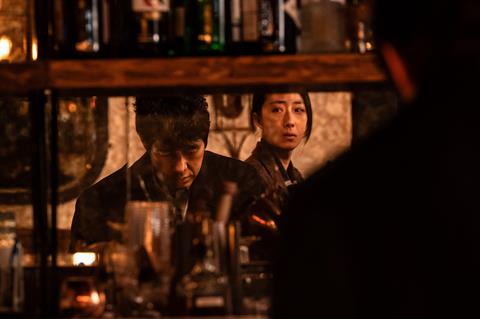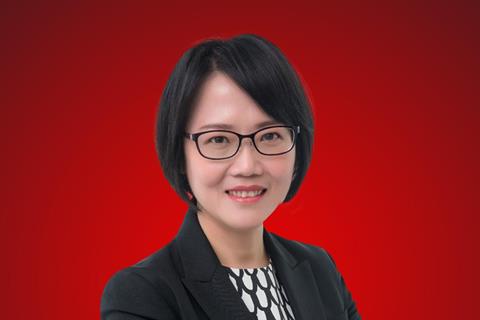
Taiwan and Japan have made initial moves into film co-production and early success has meant more projects are in the pipeline.
This increase is driven by shared cultural sensibilities, complementary industry strengths and a mutual ambition to access broader markets.
“Because Taiwan and Japan share similar creative sensibilities, aesthetics and working attitudes, collaboration feels instinctive and productive rather than forced,” says Flash Forward Entertainment’s Patrick Mao Huang, the veteran Taiwanese producer who has rare Taiwan-Poland-Japan co‑production Good Death, directed by Atsushi Funahashi and set to begin shooting in mid-January. Filming will take place mainly in Taiwan.
“Both Japanese and Taiwanese filmmakers share a sensitivity to human drama including subtle emotions, silence and the spaces between words,” says Naoya Takahashi, producer of Dear Stranger. The Japan-Taiwan-US co‑production marks Toei Company’s first English-language live-action feature and first international collaboration in decades. It has the support of JLOX+ and Taiwan’s International Co-funding Program 2.0 (TICP 2.0) from Taiwan Creative Content Agency (TAICCA). “That delicate approach to storytelling feels like a common language between us,” adds Takahashi.
New York-set suspense drama Dear Stranger stars Hidetoshi Nishijima from Oscar winner Drive My Car and Gwei Lun-Mei, one of Taiwan’s best known actresses internationally. Directed by Tetsuya Mariko, it opened in Japan in September and is set to close the upcoming Taipei Golden Horse Film Festival.
Though co-productions are a natural step towards bringing a project to fruition, successfully implementing them can be challenging. For Huang, scheduling proved a sticking point. “Japanese actors’ calendars often need to be confirmed very far in advance, which can limit flexibility in production planning,” he says.
“Negotiating a fair and mutually beneficial contract can take more time and effort,” adds Huang. “On top of that, Japan’s tax regulations are quite intricate. Once a project enters the revenue-sharing stage, there are often extensive administrative procedures that must be handled carefully.”
The learnings producer Takahashi has taken forward include “establishing clear communication early on, clarifying contracts from the start and involving cultural mediators when needed”.
He adds: “Developing an integrated marketing strategy that considers both sides of the partnership is also essential.”
Making the road to co‑production smoother is the “comparable scale of production and budget between both sides”, says Huang. “When the costs for talent, equipment and post-production are within a similar range, it makes co-ordination smoother and the partnership more sustainable.”
Mutual benefits

For Taiwanese producers, collaborating with Japan provides access to an established and financially robust industry, known for its technical prowess, craftsmanship and distribution networks. Japanese production partners are known for their experienced crews and have a reputation for quality.
“A Taiwan-Japan co-production brings a range of tangible benefits for Taiwanese producers,” says Erica Wang, CEO of TAICCA. “By sharing financial and production resources, both sides can reduce costs and risks while fostering close creative collaboration in areas such as script development, production, art design and post-production.
“This process allows Taiwanese producers to gain valuable hands-on experience and professional expertise in international co-production, strengthening their overall production capacity and global competitiveness.”
Huang adds: “Access to the Japanese market is certainly the biggest motivation. Japan remains one of the most established and influential film ecosystems in Asia, with strong distribution networks and loyal audiences.”
Taiwanese producers can also tap into the strong commercial appeal of Japanese actors and IP beyond the Chinese-speaking market. “Collaborating with Japanese talent or well-known properties can help a project travel more easily and attract both investors and audiences from multiple territories,” says Huang.
Similarly, for Japanese producers, “partnering with the Taiwanese industry provides natural access to Chinese-speaking and Southeast Asian markets,” says Takahashi. “It makes it easier to reach audiences, expand distribution networks and share costs and resources — allowing us to take on projects of a scale that might be difficult alone.
“The Taiwanese film community has a remarkable pool of world-class talent across all departments — from actors to editors, sound designers and beyond,” adds Takahashi. “Many have experience working on internationally recognised films and festivals.”
The financial incentives and support offered by TAICCA also play a pivotal role. TAICCA actively promotes international collaboration through its funding scheme such as TICP 2.0, making them more attractive to international partners and allowing creators to focus on storytelling and creativity.
Takahashi describes the programme as practical and forward-thinking. “TAICCA’s International Co-production Investment Program allows the local side to invest a percentage of the total budget and share in the profits,” he adds. “It’s an investment model rather than a subsidy, and that distinction matters. It reflects a real commitment to making the project succeed together.”
However, Huang says that although this model “encourages accountability, it often puts Taiwanese producers at a disadvantage in international co-productions”.
“We end up contributing the same amount of creative and logistical effort but receive a smaller share of the profit because the government becomes the actual rights holder,” he says.
Future projects
Taiwan Creative Content Fest (TCCF) is a key platform to connect Taiwanese creators with international collaborators and vice‑versa.
Good Death, selected for TCCF’s Project section last year, has secured funding support including from Japan’s Visual Industry Promotion Organization (VIPO), Japan Agency for Cultural Affairs and TAICCA. Huang is producing alongside Poland’s Izabela Igel, Shozo Ichiyama and Hiroyuki Yoshihara.
Good Death follows a young Polish woman and a middle-aged Japanese woman who arrive at a tranquil resort in Taiwan that offers compassionate euthanasia.
This year’s TCCF Project section spotlights several Taiwan-Japan projects, including Burning Blossoms directed by Su I-Hsuan with Endo Hitoshi serving as executive producer and Nobu Awata as producer, and Mother Tongue, directed by Fu Tien-yu, with Shinji Ogawa as executive producer and Shoko Miyamori as producer.
Other projects include Midnight Express, an 11 country co-production from Shin Yamaguchi’s Knockonwood, the team behind Searchlight Pictures’ Rental Family, while Love Letters From Tomorrow is a Taiwan-Japan-South Korea co-production between Yoosonn Entertainment and Blintn.

On working with Japan, Wang says TAICCA is “pleased that Japanese government bodies are keen to encourage Japan content producers to collaborate with international partners and optimistically hope there will be more collaboration projects in the future”.
Japan’s Agency for Cultural Affairs, which directly funds international co-productions, has had an increased presence at major markets such as Cannes, alongside the country’s VIPO and Japan Film Commission, hosting events specifically dedicated to fostering international co-productions.
Ensuring productions are feasible, Huang says he and other filmmakers “often share experiences and exchange insights with one another, hoping that each new collaboration can build on what the previous ones have achieved — and do even better next time”.
Takahashi also looked to recent collaborations such as 18x2: Beyond Youthful Days, which is spearheaded by Roger Huang of Taiwan-based Yi Tiao Long Hu Bao International Entertainment, and “gained many insights into business schemes and staff structures through these experiences”.
However, he also acknowledges “there wasn’t a direct model to follow” for Dear Stranger, which was set and filmed entirely in New York. “I believe it was precisely because of the trust and groundwork built by earlier generations of filmmakers that a project like this could come to life,” he adds.
Despite the challenges, Takahashi believes “strongly in the value of creating across borders with talented collaborators from Asia. It’s something I want to keep pursuing.”
Huang says he will “certainly continue to explore different forms of partnership, whether it is through co-financing, co-production, remakes or IP licensing”.















![[L-R]: Amanda Villavieja, Laia Casanovas, Yasmina Praderas](https://d1nslcd7m2225b.cloudfront.net/Pictures/274x183/6/4/1/1471641_pxl_20251224_103354743_618426_crop.jpg)




![Kindred Spirits [4] Horizontal Image[9]](https://d1nslcd7m2225b.cloudfront.net/Pictures/100x67/6/9/4/1473694_kindredspirits4horizontalimage9_45584.jpg)




No comments yet